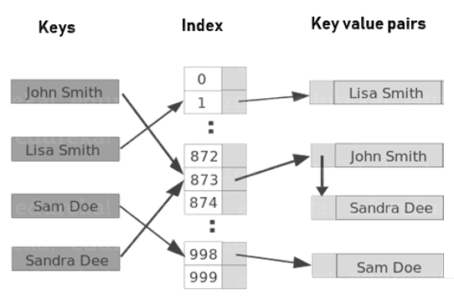Why Are Strings Immutable in Java? Thorough Evaluation for Programmers
Wiki Article
What Is Immutable Strings and How It Functions
In the world of programming, comprehending the concept of unalterable strings is critical for developing robust and protected applications. Immutable strings describe strings that can not be altered after they are produced, ensuring information stability and predictability within the code. This essential principle plays an essential duty in numerous programs languages and provides a special approach to dealing with data. By discovering the complexities of just how unalterable strings operate, one can uncover a world of advantages and opportunities that can boost the high quality and performance of software application growth.The Fundamentals of Immutable Strings
Immutable strings, as a fundamental principle in shows, are personality series that can not be altered as soon as they are developed. This implies that as soon as a string is designated a value, that worth can not be modified. In languages like Python and Java, strings are unalterable objects, causing different ramifications in regards to memory management and information honesty.One of the crucial benefits of unalterable strings is that they offer a feeling of protection in data adjustment. Because the content of an unalterable string can not be changed, it makes sure that the original information remains undamaged, minimizing the threat of unintentional modifications throughout program implementation (Why are strings immutable in Java?). This residential or commercial property additionally streamlines debugging procedures, as programmers can trust that once a string is defined, its value will not be unintentionally altered
When a new string is produced based on an existing one, rather than changing the initial string, the new worth is saved separately. In general, recognizing the basics of immutable strings is important for mastering programs ideas and maximizing code performance.
Advantages of Unalterable Strings
Building upon the security and effectiveness advantages of immutable strings, their advantages expand to enhancing code integrity and simplifying simultaneous shows tasks. By being immutable, strings can not be modified after development, which removes the threat of unintended modifications in the data they store. This intrinsic immutability ensures that as soon as a string is created, its value stays constant throughout the program's implementation, reducing the possibilities of insects triggered by unanticipated changes.Additionally, immutable strings add to code reliability by making it much easier to reason regarding the state of a program. Given that strings can not be changed, programmers can rely on that a string will certainly constantly hold the same value, streamlining debugging and maintenance initiatives. This predictability results in much more secure and trustworthy codebases.

Execution in Programming Languages
Within numerous programs his explanation languages, the unification of immutable strings is an essential facet that influences exactly how information is taken care of and adjusted within code frameworks. The execution of unalterable strings varies throughout different programs languages, with each language offering its very own mechanisms to sustain this concept.

In comparison, languages like C and C++ do not have integrated support for immutable strings. Designers in these languages have to by hand apply immutability by implementing regulations within their code to avoid straight modifications to string things.
Best Practices for Collaborating With Unalterable Strings
When handling unalterable strings in programming languages like Java and Python, sticking to ideal techniques makes sure effective and protected data manipulation. Among the essential best methods is to use StringBuilder or StringBuffer rather than straight controling strings, specifically when handling substantial concatenation operations. These courses offer mutable alternatives for string adjustment, aiding to stay clear of unneeded memory allowances and enhancing efficiency.One more ideal technique is to use string interpolation or format operates offered by the language instead of manual concatenation. This not just boosts readability yet also aids in stopping usual pitfalls such as unintentional string adjustments. Additionally, when dealing with sensitive information such as passwords or API tricks, it is crucial to prevent saving them as ordinary message in immutable strings. Using protected storage space devices like char arrays or specialized collections for managing delicate info helps alleviate safety and security dangers linked with unalterable strings.
Real-world Applications and Examples
Checking out sensible implementations of immutable strings in numerous industries exposes their substantial effect on information stability and system reliability. In the medical care field, unalterable strings play a vital role in guaranteeing the safety and confidentiality of client data. By stopping unapproved modifications to delicate details such as clinical documents and prescriptions, immutable strings assist keep compliance with stringent privacy regulations like HIPAA.Financial organizations likewise take advantage of the immutable nature of strings to improve the safety and security of client data and transaction documents. Unalterable strings aid protect against fraud and unapproved modifications to financial info, providing a robust defense versus cyber risks and making certain the depend on and confidence of clients.

Verdict
Finest techniques for functioning with unalterable strings include avoiding straight alterations and making use of techniques that return brand-new string things. Real-world applications of immutable strings consist of information file encryption, caching, and her explanation string control tasks.Unalterable strings refer to strings that can not be modified after they are produced, ensuring information integrity and predictability within the code. When a brand-new string is created based on an existing one, instead than modifying the initial string, the new value is kept independently.In languages like Java and Python, strings are unalterable by default, meaning that when a string object is produced, its worth can not be transformed - Why are strings immutable in Java?. Best practices for working with immutable strings consist of preventing straight alterations and utilizing approaches that return brand-new string things. Real-world applications of immutable strings include data encryption, caching, and string manipulation tasks
Report this wiki page